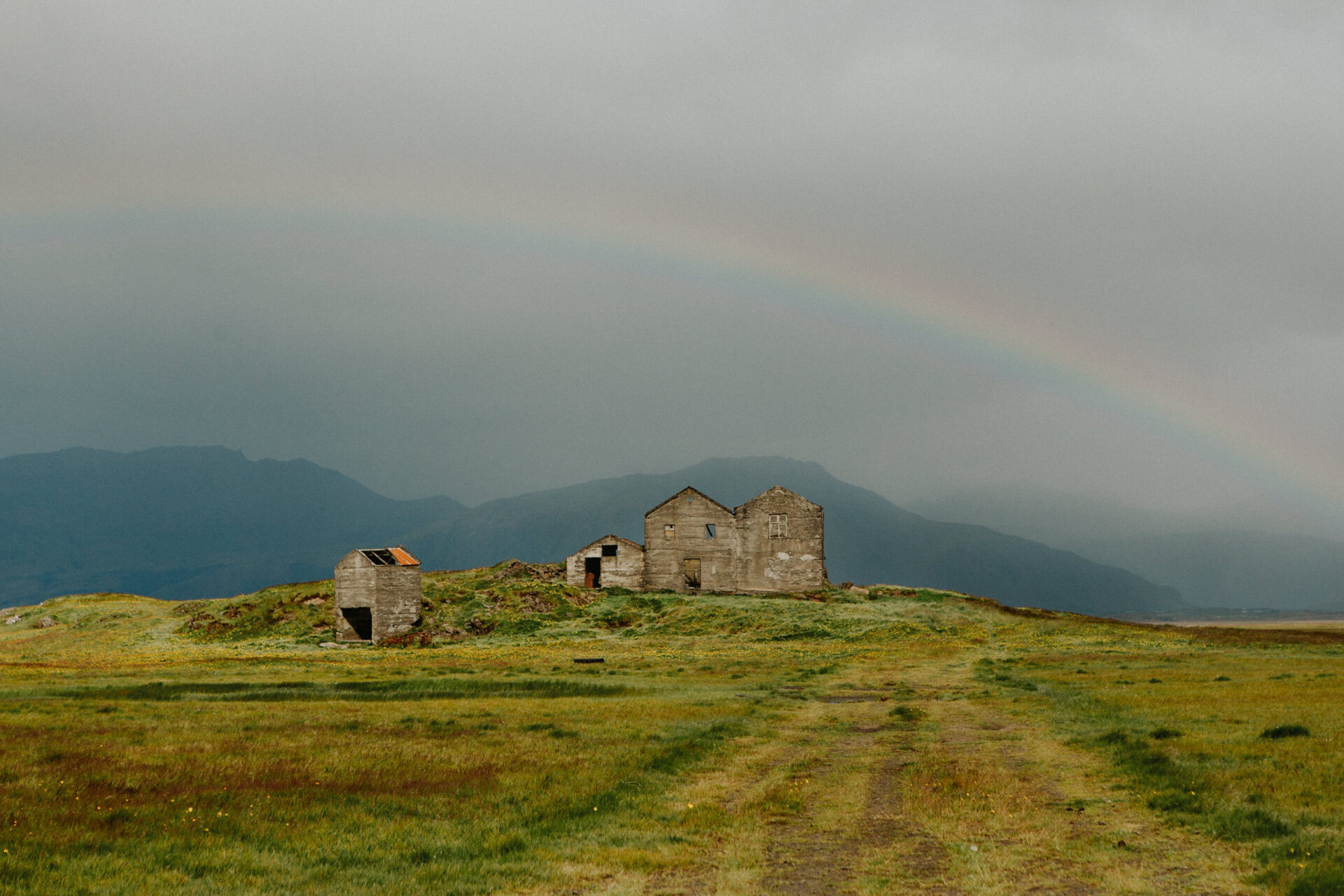At a Christian women’s conference years ago, I heard a pastor tell a story that forever changed the way I read Psalm 126. The story was from a former Christian missionary to the Sahel Desert in Africa. This American missionary grew up around farmers in the rural midwest and never understood why Psalm 126 talked about “sowing in tears” (Psalm 126:5). The planting season in his hometown wasn’t a sad occasion. That all changed for him once he lived among the people of the Sahel, where it rains only four months out of the year.
There he found families whose food supply dwindled over the eight dry months following the harvest. Once the grain supply is gone, they’re left to survive on less than one meal of thin gruel a day. Parents put their children to sleep hungry as they approach the planting season, knowing what has to be done. Their only remaining grain must be thrown to the ground. The people of the Sahel sow the seeds through tears, knowing it’s their only hope of seeing an August harvest to carry them through another year.
While sowing and reaping might be less relatable to Christians who primarily get their food from a store, the feeling of depletion in the face of need resonates. The cry from your teething baby when you’ve only been asleep for two hours. The college student in your community group questioning God’s goodness in their trauma. The call from your heartbroken best friend as you’ve just settled into bed after a long day. The emergency work call on your only free night this week. Each of us has been given a measured amount of resources—money, time, energy, relational capacity—as well as people to care for—our families, our church communities, our neighbors. How are we to respond when all we have to give is all that’s left?
Our response tends to fall to one of two extremes. The first way says, I can’t give anything. I’m the only one who will take care of me and that means I can’t be sure there will be enough left for you. The needs around me are too big and I’m afraid to be confronted with my insufficiency. I don’t know what to say or how to help so I’ll just stay home and stay silent. I’ll keep my grain for myself and it’ll get me through the day.
The second way says, I have to give everything. I’m the only one who can meet this need. Giving everything makes me feel important or seen. I don’t trust anyone else to do it right and I don’t want to wait for them to try. If I don’t take care of this, no one else will, so I’ll sow my grain for everyone and provide for all of their needs myself.
The Bible presents us a better alternative. In the pages of Scripture, we see people offer what little means they have and then watch God multiply it into more than enough. He does this with bread, specifically, at least three times. In 2 Kings 4:42-44, a man from Baal-Shalishah gives the prophet Elisha twenty loaves of barley bread, and God multiplies it to feed a hundred people with some left over. In John 6:1-15, Jesus takes five barley loaves and two fish and multiplies it to feed more than 5,000 people with some left over. And then in Matthew 15:32-39, Jesus takes seven loaves and a few fish and multiples it to feed a different 4,000+ people with—you guessed it—some left over! In all of these instances, someone offers God his meal rather than keeping it for himself. And in all of these instances, God takes that offering and multiplies it to be more than enough for everyone to eat.
In every one of these accounts, God knew how much bread would be needed, and he knew how much bread would be offered. Did he not determine who would pack a lunch that day and who wouldn’t? How much food each person would be able to make or buy for himself? How many people would show up that day and need to be fed? God could have provided the meal by any means he wanted. But the point was not simply to fill bellies—it was to produce worship.
And worship is what he’s wanting to produce in us, as well. The sleepless nights of newborn parenting stretch any mom or dad past their capacity. Grandparents can fill in and parenting books can offer tips, but only God can produce in us the dependence on him that we’ll need throughout the toughest years to come. We can ignore the college student’s raw vulnerability out of fear or give them our best counseling advice, but sitting with them in their hurt reminds us that God is present in ours, too. We can send our friend’s call to voicemail and maybe that’s what we need to do sometimes—sleep is important, too! But when we choose to answer her call and quietly listen to her cry, we share a hope that one day, “grief, crying, and pain will be no more” (Revelation 21:4 CSB). And when we show up for overtime with a posture of service rather than a heart of bitterness, we live out Ephesians 2:10 (CSB), which says that “we are [God’s] workmanship, created for good works, which God prepared ahead of time for us to do.”
The provision of God is not just for our physical needs, but for our spiritual ones as well. After Jesus feeds the 5,000 in the Gospel of John, he proclaims himself to be the bread of life. Jesus was identifying as the source and sustainer of our lives—both in the present and for all of eternity. He was offering a satisfaction that lasts beyond our next meal. This satisfaction can only come from knowing that our sinful debt has been paid and new life has been attained for us. And he was going to have to pour out the very last of himself in order to secure it.
It’s this faithful provision of God, present long before Jesus declared, “I am,” that allowed the author to pen Psalm 126 (John 6:35). The Psalmist recalls a time when the Lord blessed his people and did “great things for them” (Psalm 126:2-3). He foretells of a future where their fortune is restored and they are once again joyful. But in the meantime, he describes his people “sowing in tears” (Psalm 126:5). Why were they crying? Perhaps it was because their climate was as unforgiving as the Sahel Desert. Perhaps it was because the masters of their captivity left them as hungry as a half portion of gruel. Perhaps it was from the heartbreak of their people being scattered like the African dust in the dry season. Or perhaps it was the result of their desperation for the Lord to do what they could not—produce a harvest.
He can take whatever you have left to offer, too, and multiply it into an abundance. The plan was never for you to be or have enough on your own. But when you offer your meager portion rather than hoard it, you leave room for God to do what only he can. Your contentment multiplies despite your empty hands. Your intimacy with God grows as he hears the desperate prayers you entrust to him. And your faith expands as you see him yield a harvest you could never have imagined.
When all you have to give is all that’s left, you can trust the giver of all good things to reap a harvest of worship. As Paul encourages the Corinthians:
“The person who sows sparingly will also reap sparingly, and the person who sows generously will also reap generously. Each person should do as he has decided in his heart—not reluctantly or out of compulsion, since God loves a cheerful giver. And God is able to make every grace overflow to you, so that in every way, always having everything you need, you may excel in every good work. As it is written:
He distributed freely;
He gave to the poor;
His righteousness endures forever.
Now the one who provides seed for the sower and bread for food will also provide and multiply your seed and increase the harvest of your righteousness. You will be enriched in every way for all generosity, which produces thanksgiving to God through us. For the ministry of this service is not only supplying the needs of the saints but is also overflowing in many expressions of thanks to God.”
2 Corinthians 9:6-12 (CSB)
At some point, loving God and loving our neighbor will require more of us than what we think we have to give. In those times, we get to pour out the last of what we have to offer, even in tears, because we have hope in the God of the harvest. He will produce in us sheaves of joy and a bounty of worship. When all you have to give is all that’s left, you can trust the Lord to return a harvest that’s more than enough.
What’re the needs of the people in your life that feel overwhelming? Are you prone to believe you have nothing to offer them? Or are you more likely to give everything, believing you are what they need? Consider reading Psalm 126 in the coming days. Ask the Lord to remind you of the ways he has provided for your physical and spiritual needs before, and pray that he would give you the faith that you need to worship him with hope. Ask him to remind you that even when all you have to give is all that’s left, you can trust him to return a harvest that’s more than enough.
Photo Credit: Emilee Carpenter
Kelly is a follower of Jesus, wife to Scott, mom of 5, keeper of plants, and lover of both stories and spreadsheets. She leads women’s discipleship at her local church in Hamilton, Ohio alongside some of her favorite people. Kelly’s natural curiosity makes her an eager learner, and she’s passionate about sharing the truth of the Scriptures with others. When she’s not working, studying biblical Hebrew, or volunteering for her kids’ school, you can probably find Kelly eating chips and watching reruns of Frasier.






